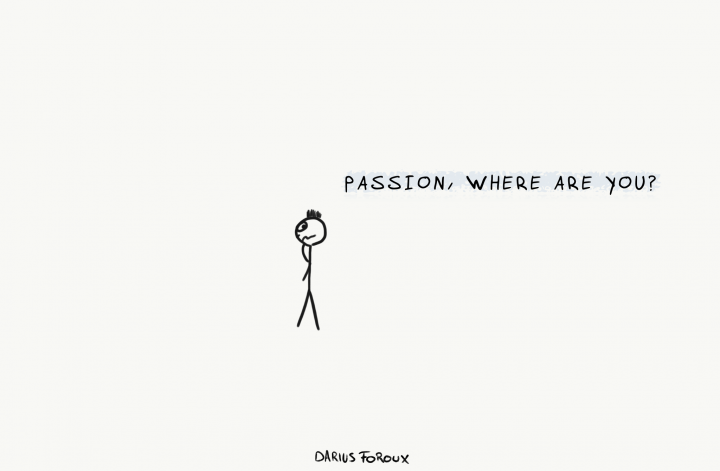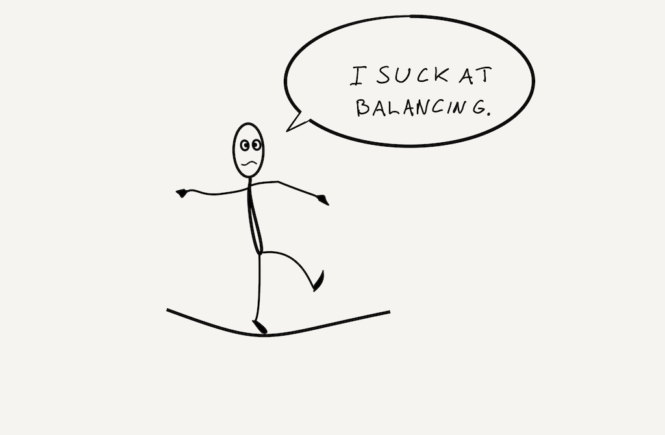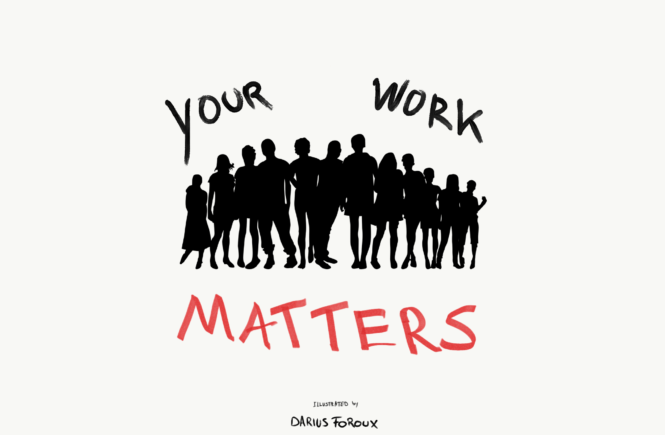We collectively believe in a lot of myths. One of them is that your life only makes sense if you do what you love. That might be true, but the pursuit of your passion can be equally satisfying, which is something we often overlook.
Casey Neistat is an awesome YouTuber and entrepreneur. In his vlogs, he often talks about how much he loves his work (most recently here). And he advocates the belief of “find a job that you love and you don’t have to work for a day in your life.”
He’s not the only one who believes that. Many artists, athletes, entrepreneurs believe the same.
Steve Jobs even said:
“You’ve got to find what you love. And that is as true for your work as it is for your lovers. Your work is going to fill a large part of your life, and the only way to be truly satisfied is to do what you believe is great work. And the only way to do great work is to love what you do. If you haven’t found it yet, keep looking.”
I agree. However, it seems like many of us put too much pressure on ourselves to find our passion.
- Without passion, we are not complete.
- Without passion, our life has no meaning.
Really? It sounds like we’re giving ‘passion’ too much attention these days. It’s important, yes, but it’s not a magical solution that will make all your problems disappear.
Some people say: “If only I would find my passion.”
And I think: Then what? Let’s say you find your passion.
But if you’re an idiot, you will be an idiot with a passion. And if you’re a miserable complainer, you’ll be a miserable complainer with a passion.
Don’t expect that your life will be 10X better when you love what you’re doing. Life is still LIFE. You have to wake up, make money, struggle, and deal with all the other things that life brings with it.
People ask me: How did you find your passion?
I’m one of those people who didn’t exactly know what they wanted to do when they grew up. There were many things I thought about doing.
But was I miserable before I started doing what I do now? Fuck no.
I have to admit, I’ve been an idiot and I’ve made stupid decisions in the past, but I’ve also been a hard worker, got two degrees from college, read tons of books, traveled, started and failed a few businesses, and always made the best out of bad situations.
And then one moment in 2015, I thought: Why not write about the stuff that I’ve learned along the way? My mentors and people who were close to me told me I should do this stuff a few years ago. I didn’t think about it at the time. But last year it just happened. Like a eureka moment.
Don’t get me wrong: It’s awesome to wake up every day and look forward to working on the stuff you love to do. But it’s not the ultimate key to happiness.
“So how is that information useful for me?”
For the past year, I’ve been researching how others can stimulate the process of ‘finding your passion.’ But I’ve never found any research that has a sound answer to that question.
No research says ‘do XYZ’ and that will result in YOUR PASSION.
The only research that comes close is from neuroscience and eureka moments. You know super awesome insights that appear out of nowhere. And finding your passion is often the same: It’s just an insight.
In The Eureka Factor, John Kounios and Mark Beeman explain how insights arise and what scientific research says about stimulating them. They write:
“Though insights often come as a surprise, sometimes we can sense that an idea is present, lurking just below the threshold of awareness, ready to emerge. This puzzling phenomenon has a strange subjective quality. It feels like an idea is about to burst into your consciousness, almost as though you’re about to sneeze.”
Instead of putting pressure on yourself, you need something else that will trigger that final step of getting a eureka moment. Kounious and Beeman continue:
“Cognitive psychologists call this experience “intuition,” meaning an awareness of the presence of information in the unconscious mind — a new idea, solution, or perspective — without awareness of the information itself, at least until it pops into consciousness.”
You don’t know your passion because you’re not aware of it. That’s all. Don’t make things more complicated than they are. And don’t try to force it to come out of you. It’s not a pimple that you HAVE to pop.
“But how can I stimulate my brain to get more insights?”
- Expose yourself to different things. Read about stuff you’ve never considered. Travel. Hang out with different people. The more you broaden your mind, the more information you get. Kounious and Beeman show that eureka moments are often a blend of different ideas that you’re exposed to.
- Manage stress and anxiety. Chronic stress and anxiety prevent your mind to think clearly, focus, and relax. Those are key ingredients of getting new insights. So before you think about finding your passion, deal with stress and anxiety first if you’re having a lot of it.
I think those two things are critical steps that most of us skip. We dive into the practical things like keeping a notebook next to your bed.
But the thing is: You need input if you want to output.
Instead of consciously thinking about your passion, let your passion come to you. It’s somewhere inside of you, hiding because it’s afraid to expose itself.
You just have to trust that someday it will seemingly appear out of nowhere. When that day comes, make a happy dance, celebrate, whatever, but the next day, wake up and start working.
Just like you’re doing now.




